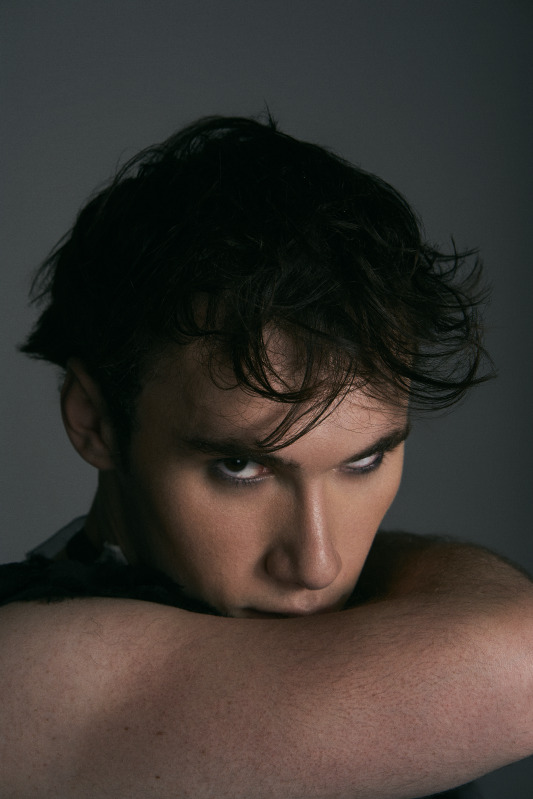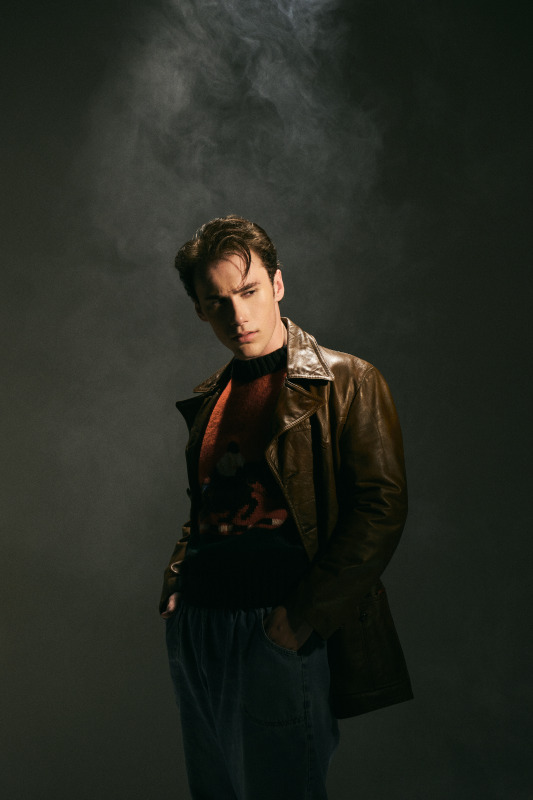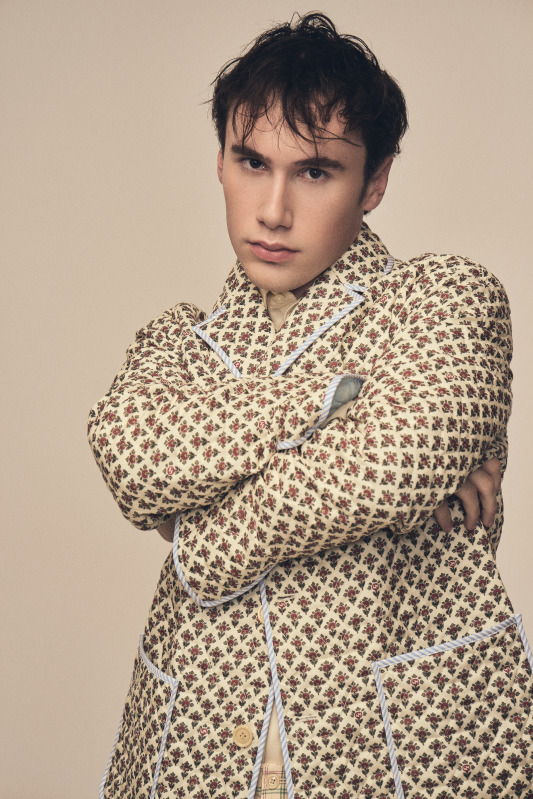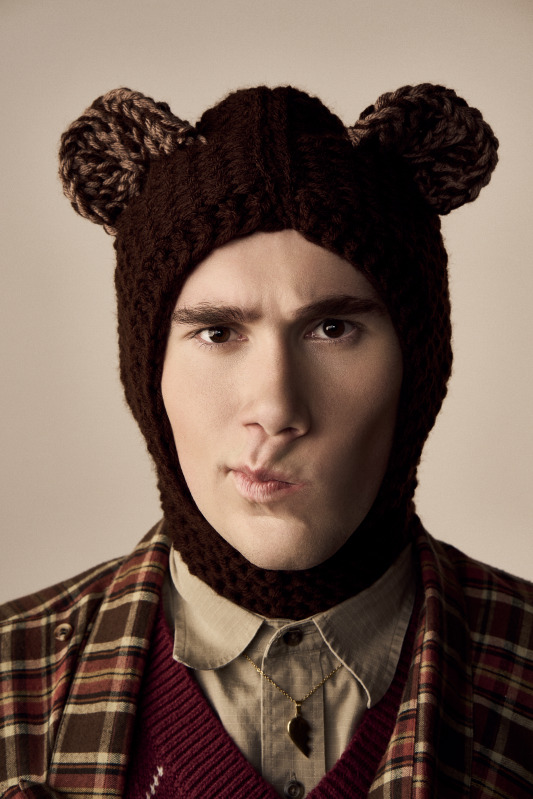
Los Angeles native George Baron is no stranger to the spotlight. He starred alongside Bradley Cooper, Paul Rudd, and Amy Poehler as Arty in Wet Hot American Summer: First Day of Camp, and has guest starred on hit shows Two Broke Girls, PoliKidz, and Teachers.
Today, he’s rising to fame as a multi-talented artist who wrote, directed, and stars in The Blue Rose, a horror film that premiered July 12. A genre-bending noir film set in the 1950s and inspired by the golden age of Hollywood, The Blue Rose follows two rookie detectives on a quest to solve a homicide.
Between acting and directing, Baron studies at Savannah College of Art and Design (SCAD). He’s passionate about environmental issues and is involved in advocating for Queer youth and supporting underprivileged young filmmakers, bringing passion and advocacy to every area of his life.
In an exclusive interview with Indira Cesarine for The Untitled Magazine, George Baron dishes on his childhood as a young queer actor and shares behind-the-scenes secrets about creating The Blue Rose.
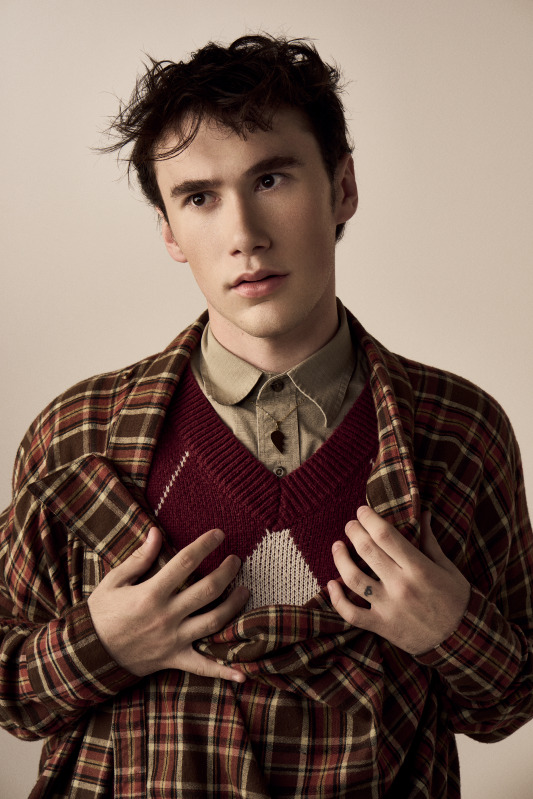
Indira Cesarine: Your directorial debut, The Blue Rose, has been described as a “pastel-noir” film. Can you elaborate on this unique genre blend and how it shaped your creative approach?
George Baron: Pastel-Noir is not real. It’s something I made up when I was 15 and I honestly have no idea what I was talking about, I just wanted to sound cool and different. If I HAD to try and explain what I think it means, I would say that the color palette and themes are different from a noir, but the story structure closely resembles that of a classic Old Hollywood noir.
You started directing theatre at a very young age, while also working as a child actor. How did these early experiences in both acting and directing shape your approach to filmmaking, particularly in your directorial debut The Blue Rose?
I think I got the best education I could while working on set and just observing everything happening. That was how I was taught. It shaped so much more than just my approach to filmmaking. I’m very grateful for the experiences I had.
Your career has spanned acting in projects like Wet Hot American Summer: First Day of Camp to now writing and directing your own feature film. Can you describe the journey that led you from acting to taking on multiple roles behind the camera, and what inspired you to make that transition?
I used to be a pretty heavy-set kid and would go out for a lot of characters where their fatness was their character trait, and when you’re a gay 12-year-old, that really destroys your mental health. I took a few years off and devoted my time to theater and watching as many movies as I could, and then when the pandemic hit, I knew I was ready to hop back in the ring with a lot more knowledge and confidence than I had before.
The film was inspired by an Immersive Theater Art Show you directed in 2020. How did you translate that experience into a feature film, and what challenges did you face in the process?
I wouldn’t say that the process itself was challenging because the stories are very different and it was rather seamless.
You’ve set The Blue Rose in a “quasi-50s” era. What drew you to this time period, and how does it enhance the themes of gender fluidity and repressed fears in the film?
Because the ’50s are fun! It’s fun to romanticize nostalgia and the past. My version of the ’50s is not at all what the 1950s were like in real life. To me, The Blue Rose is not a period piece, but rather a fantasy film that takes stylistic elements from that era.
As someone who both wrote and stars in the film, how did you balance your roles as writer, director, and actor during production?
I honestly don’t know. I was on such an adrenaline high I just didn’t have time to think too hard about it. I was just ready to go. I felt like a machine.
The Blue Rose premiered at FrightFest in London. Can you tell us about the premiere?
It was so fun having some of the cast members there in another country and getting to explore together and see all of these incredible films. I got to see so many films that are now some of my favorite movies of all time like Where the Devil Roams, Departing Seniors, Black Mold, etc.
Your friend Sophia Victoria Frizzell’s artwork inspired many of the characters. Can you tell us more about your collaboration and how it influenced the visual style of the film?
Well, we collaborated on the immersive theatre art show together and that was the conception of this whole project. She and I are both super inspired by pop surrealist artists like Mark Ryden and Nicoletta Ceccoli and their work combined with Old Hollywood Technicolor films informed the visual style of The Blue Rose.
Horror. Horror all day long. Horror is where my heart is.
As someone passionate about environmental issues and advocating for Queer youth, do these themes find their way into your work, including The Blue Rose?
No, I don’t think so.
With The Blue Rose now released, what’s next for you? Are there any upcoming projects you’re excited about that you can share?
I’m in a new film that’s playing festivals this year called “Hey, I Made This For You.” It’s super cute and funny. Other than that, I’m taking care of myself and going to school, just taking it one day at a time.

